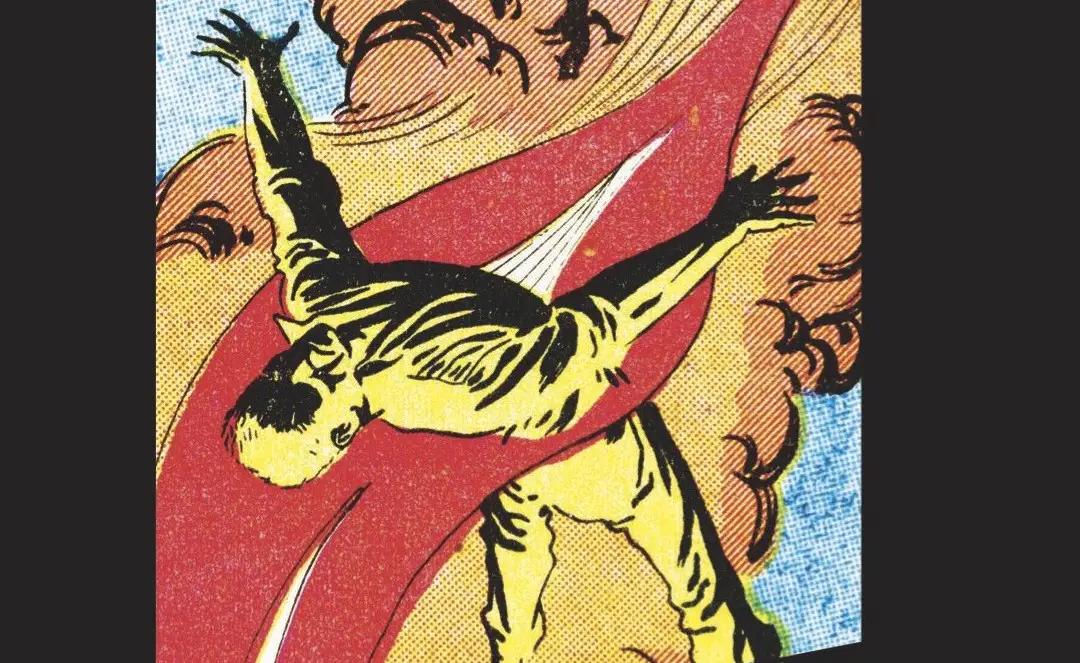[amazon_link asins=’1684051789′ template=’AiPTProductAd’ store=’aiptcomics-20′ marketplace=’US’ link_id=’53a50950-1119-11e9-9d4e-17d174a4cad3′]
Many of the stories here are collected for the first time in decades, tales from Steve Ditko and many other creators (some uncredited and lost to time) that brought the horrors of conflict right into the hands of readers of all ages! While war comics were a dime a dozen back in the day, these went an extra step and attempted to show the importance and power of compassion. This collection shines a light on a lesser known side of the comic book industry from the ’50s and ’60s: anti-war comics.
Though much of the dialogue is dated, the stories told here are surprisingly unflinching in their attempts at shedding light on the ugliness of our past. Some of the characters in these stories are presented as men doing what they’ve been told is the right thing, blindly following orders they don’t even agree with. Or worse, they’re written as hypocrites meting out “justice” without pausing to think about the horror of their own actions.
These were groundbreaking stories at the time, even outside of the comics medium. So much of our entertainment in the U.S. was based around flag-waving, jingoistic heroes backing up our boys on the frontlines. As explained in the introduction of this collection, many artists and writers were told by editors to make their antagonists more exaggerated, more stereotypically “other.” The heroes were mainly white men cutting wide swaths through horrific caricatures of foreign forces. It was a surprise, then, to see some of these stories told from the perspective of the other side, to show the Americans as the aggressors, the invaders.

The fact that many of these comics were published in the height of wartime is nothing short of incredible, not to mention brave on the part of the creators. Sure, many of these stories read rather clumsily now, but their intent is admirable and occasionally poignant. For instance, there’s an oddly prescient tale from Charlton Comics’ Strange Suspense Tales about aliens from another world seeking refuge and being told by Earth’s representatives that they will have to build a wall to keep them from interfering with our way of life. Spoiler alert: it turns out to be a terrible idea.
Some of these stories feature heady debates that must have surprised readers at the time. In a standout story from Never Again #8, a group of soldiers debate the use of atomic weapons in war, praying that it means the end of war. They’re actually grateful for the threat of mutually-assured destruction, as long as it leads to men agreeing to end their conflict for the sake of survival. This wouldn’t have made for great reading material for the youngsters of the era who were more invested in seeing Captain Marvel sock Dr. Sivana right in the specs, but it must have been comforting to the U.S. soldiers overseas to see writers thinking of them and how hard things really were in the thick of war.

The strongest of these stories are the ones that transcend the anti-war sentiment and really get into the emotions and distrust that drive wars. These are better described as anti-hate stories. Sure, some of them are a little hokey, such as one where the power of love literally pushes an invading space fleet away, but the intention behind them is important in an era when writers were urged by their editors to submit stories about spilling as much foreign blood as possible. These are the tales that become a kind of noble propaganda.
The stories that have aged the best here may actually be the science fiction ones, mainly due to the more interesting set pieces and illustrations. Meanwhile, many of the more “grounded” tales come off as very dry historical lessons. This book wisely sequences the stories, taking care to break them up in ways that ensure the reading experience isn’t monotonous. The Unknown Soldier tales are a slog, in particular. While fascinating artifacts of the time, they’re the ones with the stiffest dialogue and the most basic plotting. Luckily, future writers would seize upon the inherent value of the Unknown Soldier as a character and go on to tell excellent stories using the Soldier as a mouthpiece.
Even in the lesser of the entries in this collection, there’s something to hold onto. That being said, I can’t entirely recommend this book on the strength of the stories within. It truly is a fascinating assortment of ideas, though. As a historical record, this anthology is invaluable.
Join the AIPT Patreon
Want to take our relationship to the next level? Become a patron today to gain access to exclusive perks, such as:
- ❌ Remove all ads on the website
- 💬 Join our Discord community, where we chat about the latest news and releases from everything we cover on AIPT
- 📗 Access to our monthly book club
- 📦 Get a physical trade paperback shipped to you every month
- 💥 And more!














You must be logged in to post a comment.